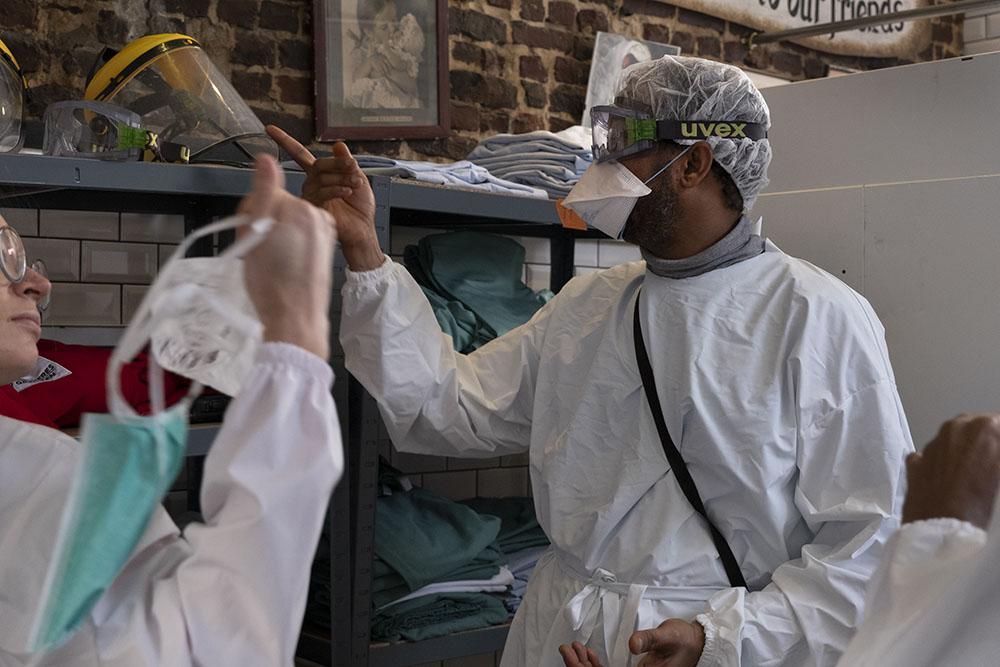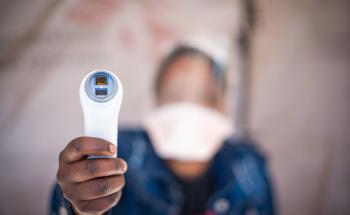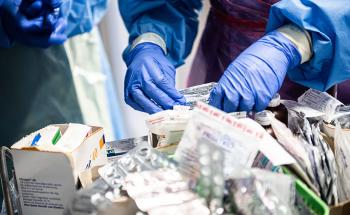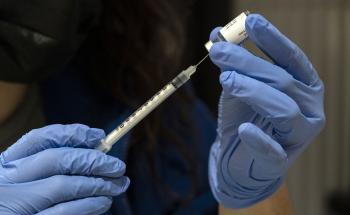Background:
Doctors Without Borders (MSF) welcomes the announcement by the World Health Organization (WHO) COVID-19 Technology Access Pool (C-TAP) and the Medicines Patent Pool (MPP) of the first global, non-exclusive and transparent voluntary license for a COVID-19 diagnostic test. The technology, offered by the Spanish National Research Council (CSIC), is an antibody test capable of quantifying three different types of antibodies and can differentiate vaccinated people from natural COVID-19 infections for public health surveillance. With the rollout of vaccination programs, this feature will become very important for measuring the number of COVID-19 cases in countries and the impact of control measures.
Since December 2020, WHO has recommended using quantitative immunoassays (ELISA) for surveillance of COVID-19. Reliable tests for surveillance of COVID-19 are critical to measuring incidence and mortality, and which population groups are at the highest risk. Until today, WHO has had only one antibody ELISA test on its prequalified emergency use list, the Elecsys Anti-SARS-CoV-2 ELISA test from Roche, a large Swiss-based pharmaceutical corporation. This test can only be used with Roche’s own device, which is neither readily available nor suitable for most resource-limited settings. Many ELISA tests available on the market can only identify one or two types of antibodies.
In order to overcome the monopoly of large diagnostics companies such as Roche, and to facilitate the production and supply of reliable ELISA antibody tests in all countries, the open license from CSIC to WHO C-TAP is an important step forward.
However, one license from one technology owner is not enough to open up the full platform so that developers in countries can improve their tests for COVID-19 antibodies. Removing intellectual property barriers on all key technology components, and facilitating open sharing, pooling and transferring of technologies, data and know-how, is important to guarantee and improve access to COVID-19 diagnostics for all.
“MSF welcomes the announcement of the first open and transparent voluntary license for a COVID-19 diagnostic test. As ELISA antibody testing is recommended by WHO for COVID-19 surveillance, we hope that the open licensing of this technology will now speed up local production of this test in low- and middle-income countries to support COVID-19 surveillance.
“Poor access to reliable diagnostic tests is a challenge in many low- and middle-income countries, partly because of the limited access to proprietary technologies by local diagnostic manufacturers, leaving these countries largely reliant on imported diagnostic tests from the US, Europe and Asia.
During the pandemic, we have witnessed hoarding of not just vaccines and treatments but also of COVID-19 diagnostics, which has left many low- and middle-income countries without much-needed tests to help in controlling COVID-19.
“In this pandemic, access to reliable diagnostic tests is the first and foremost step to save lives and to measure COVID-19 cases and the impact of interventions. It’s preposterous that even in the face of catastrophic waves of disease, resulting in millions of deaths worldwide, diagnostics corporations have continued to monopolise and hoard critical COVID-19 tests for a handful of privileged people and countries.
“Even though WHO has recommended using ELISA-based immunoassays for public health COVID-19 surveillance since December 2020, Roche remains the sole WHO-approved supplier. Roche continues to refuse the open sharing of this technology with other manufacturers. The COVID-19 Technology Access Pool license is a promising step forward to break monopolies like Roche’s and to allow all countries to develop and manufacture this lifesaving technology.
“But as large corporations continue to hold monopolies over the majority of COVID-19 health technologies, this successful licensing of a diagnostic test to the WHO COVID-19 Technology Access Pool should be complemented with the adoption of the ‘TRIPS Waiver’ proposal at the World Trade Organization Ministerial meeting next week that aims to suspend intellectual property for all COVID-19 medical tools, including diagnostics.”



